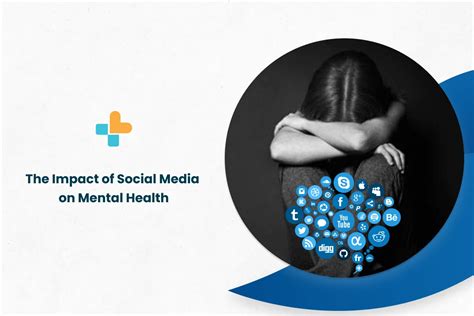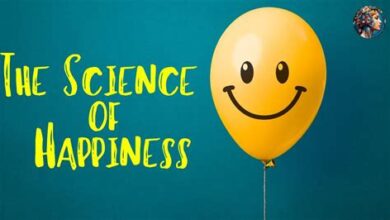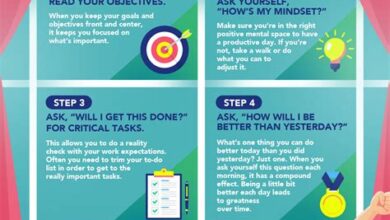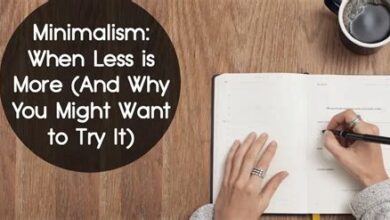The Impact of Social Media on Mental Health

This blog post explores the impact of social media on mental health in today’s society. It delves into social media’s role and analyzes its connection to self-esteem, highlighting how platforms can influence self-perception. Furthermore, it examines the correlation between social media usage and anxiety levels, providing insights into potential links. The article concludes by offering practical strategies for fostering healthy social media habits and promoting overall mental wellbeing, empowering readers to navigate the digital landscape responsibly and minimize negative effects.Okay, I will create a content section for your blog post about The Impact of Social Media on Mental Health, focusing on Understanding Social Media’s Role In Today’s Society. Here’s the content: html
Understanding Social Media’s Role In Today’s Society
Social media has become an undeniable cornerstone of modern society, profoundly influencing how we communicate, consume information, and perceive the world around us. From instant global connectivity to the proliferation of user-generated content, its pervasive reach touches nearly every aspect of daily life. The impact of this digital revolution on individuals and communities warrants careful examination, particularly concerning its effects on mental well-being.
Social media platforms serve as multifaceted tools, offering avenues for social interaction, information dissemination, and self-expression. Individuals utilize these platforms to maintain relationships, join communities centered around shared interests, and stay informed about current events. Businesses leverage social media for marketing, customer engagement, and brand building. However, this constant connectivity also presents challenges, blurring the lines between the real and virtual worlds.
| Platform | Monthly Active Users (Approximate) | Primary Use |
|---|---|---|
| 2.9 billion | Connecting with friends and family, news consumption | |
| 1.4 billion | Photo and video sharing, lifestyle content | |
| 330 million | News updates, public discourse, short-form content | |
| TikTok | 1 billion | Short-form video creation and sharing, entertainment |
The curated nature of online profiles often leads to social comparison, where individuals measure themselves against idealized representations of others’ lives. This can contribute to feelings of inadequacy, low self-esteem, and anxiety. Furthermore, the constant stream of information, notifications, and online interactions can be overwhelming, leading to information overload and a sense of being perpetually on.
Considering these factors is crucial to understanding social media’s complex influence. It is important to develop a balanced perspective, acknowledging its potential benefits while mitigating its potential harms.
- Key Aspects of Social Media’s Influence:
- Connectivity: Facilitates global communication and social networking.
- Information Access: Provides instant access to news, information, and diverse perspectives.
- Self-Expression: Offers platforms for creative expression and personal branding.
- Social Comparison: Encourages comparison with others, potentially impacting self-esteem.
- Cyberbullying: Creates opportunities for online harassment and abuse.
- Information Overload: Contributes to a constant influx of information, leading to stress.
The anonymity afforded by certain online platforms can unfortunately foster negative behaviors such as cyberbullying and online harassment. These behaviors can have devastating effects on the mental health of victims, leading to feelings of isolation, depression, and even suicidal ideation. Addressing these issues requires proactive measures from social media companies, as well as increased awareness and education among users.
“Social media provides people with an avenue to connect with others, stay informed, and express themselves, but it also presents challenges related to privacy, misinformation, and mental well-being.” – Pew Research Center
Exploring The Impact Of Social Media On Self-Esteem
Social media’s pervasive presence in modern life has undeniably reshaped how we perceive ourselves and others. The Impact on self-esteem is a complex issue, influenced by constant exposure to curated content and the pressure to maintain a flawless online persona. This section delves into the multifaceted ways social media affects our self-perception, exploring the underlying mechanisms and potential consequences.
One of the primary ways social media affects self-esteem is through social comparison. The constant stream of idealized images and success stories can lead individuals to measure their own lives against unrealistic standards, fostering feelings of inadequacy and dissatisfaction. This phenomenon is particularly pronounced among young adults and adolescents, who are more susceptible to the pressures of fitting in and seeking validation from their peers online.
The Role of Social Comparison
Social comparison theory suggests that individuals have an innate drive to evaluate themselves by comparing themselves to others. On social media, this process is amplified, as users are presented with a carefully curated highlight reel of their peers’ lives. This can lead to what is often referred to as compare and despair, where individuals experience a decline in self-esteem as a result of perceiving themselves as inferior to others.
| Aspect of Life | Social Media Depiction | Potential Impact on Self-Esteem |
|---|---|---|
| Appearance | Filtered and edited photos | Increased body dissatisfaction |
| Achievements | Highlight reels of successes | Feelings of inadequacy |
| Relationships | Perfectly posed couples | Unrealistic relationship expectations |
| Lifestyle | Lavish vacations and experiences | Sense of financial insecurity |
Furthermore, the pursuit of online validation plays a significant role in shaping self-esteem. Likes, comments, and shares have become a form of social currency, with individuals often equating their worth with the amount of engagement they receive on their posts. This can create a cycle of dependence, where self-esteem becomes contingent upon external validation, leading to anxiety and insecurity when that validation is lacking.
Impact of Online Validation
The desire for online approval can drive individuals to engage in behaviors they might not otherwise consider, such as posting provocative content or conforming to popular trends. While receiving positive feedback can provide a temporary boost to self-esteem, it is ultimately a fragile and unsustainable source of self-worth. This constant need for validation can be especially detrimental to individuals who are already struggling with low self-esteem.
- Factors Influencing Self-Esteem:
- Social Comparison
- Online Validation
- Cyberbullying
- Media Representation
- Peer Influence
- Family Support
However, the impact of social media on self-esteem isn’t solely about idealized portrayals and validation-seeking behaviors. Cyberbullying, another prevalent issue on social media platforms, can have a devastating effect on an individual’s self-worth. The anonymity and reach afforded by the internet can embolden bullies, making it easier for them to inflict emotional harm on their victims. The constant exposure to negative comments, harassment, and online shaming can severely damage self-esteem and lead to long-term psychological distress.
Cyberbullying and Self-Worth
Cyberbullying can take many forms, including spreading rumors, posting embarrassing photos or videos, and sending threatening messages. Unlike traditional bullying, cyberbullying can occur 24/7 and reach a wide audience, making it particularly difficult for victims to escape. The psychological effects of cyberbullying can be profound, leading to feelings of shame, isolation, and hopelessness.
Cyberbullying is not just something that happens online; it has real-world consequences for victims’ mental health and self-esteem. – Dr. Sameer Hinduja, Co-Director of the Cyberbullying Research Center
In conclusion, social media’s influence on self-esteem is complex and multifaceted. While it offers opportunities for connection and self-expression, it also presents significant challenges in terms of social comparison, online validation, and cyberbullying. Understanding these dynamics is crucial for promoting healthy social media usage and protecting mental wellbeing.
Analyzing Correlation Between Social Media And Anxiety Levels
The relationship between social media usage and anxiety levels has become a significant area of concern in recent years. As social media platforms become more integrated into our daily lives, it’s crucial to understand how they might be contributing to increased anxiety. The Impact of constant connectivity, the pressure to maintain a perfect online persona, and exposure to an overwhelming amount of information can all play a role in exacerbating anxiety symptoms.
- Constant Comparison: Social media often leads to comparing oneself to others, triggering feelings of inadequacy and anxiety.
- Fear of Missing Out (FOMO): The constant stream of updates about others’ activities can create a sense of missing out, leading to anxiety and dissatisfaction.
- Cyberbullying: Online harassment can have severe emotional and psychological effects, significantly contributing to anxiety.
- Information Overload: The sheer volume of information on social media can be overwhelming, leading to stress and anxiety.
- Addiction and Dependency: Excessive social media use can lead to addiction, which is often linked to higher anxiety levels.
Research indicates a strong correlation between heavy social media use and higher levels of anxiety. Studies have shown that individuals who spend more time on social media are more likely to report symptoms of anxiety, such as restlessness, difficulty concentrating, and increased heart rate. This connection is complex and multifaceted, influenced by various factors, including the type of content consumed and the individual’s pre-existing mental health conditions.
| Study | Sample Size | Key Findings |
|---|---|---|
| Journal of Abnormal Psychology | 500 participants | Significant positive correlation between social media use and anxiety symptoms. |
| Computers in Human Behavior | 800 participants | Increased social media use associated with higher levels of social anxiety. |
| Cyberpsychology, Behavior, and Social Networking | 1200 participants | Exposure to cyberbullying on social media strongly linked to anxiety and depression. |
| Anxiety and Depression Association of America | Survey of 2000 adults | 60% reported social media contributing to feelings of inadequacy and anxiety. |
Furthermore, the design of social media platforms often encourages compulsive behavior. Notifications, endless scrolling, and the reward system of likes and comments can create a cycle of seeking validation and approval, which can be particularly harmful for individuals prone to anxiety. The Impact is that users may find themselves constantly checking their accounts, feeling anxious when they are unable to do so, and experiencing a sense of unease if their posts don’t receive the desired attention.
In conclusion, while social media offers numerous benefits, it’s essential to recognize its potential to contribute to anxiety. Understanding the mechanisms through which social media can affect mental health is the first step towards developing strategies for healthier usage and mitigating its negative effects. As our reliance on these platforms continues to grow, it becomes increasingly important to promote mindful engagement and prioritize our mental well-being.
Strategies For Healthy Social Media Usage And Mental Wellbeing
Navigating the digital landscape requires a conscious effort to maintain a healthy balance. The pervasive nature of social media means that its impact on our mental wellbeing can be significant, both positively and negatively. It is crucial to develop strategies that allow us to enjoy the benefits of social connection and information sharing, while mitigating the potential harms to our mental health. This involves being mindful of our usage patterns, the content we consume, and how social media interactions affect our emotions and self-perception.
| Aspect | Healthy Usage | Unhealthy Usage |
|---|---|---|
| Time Spent | Limited and intentional | Excessive and compulsive |
| Content Consumed | Positive, educational, and uplifting | Negative, comparative, and triggering |
| Interaction Style | Authentic and meaningful | Superficial and performative |
| Emotional Impact | Inspiring, connecting, and informing | Anxiety-inducing, isolating, and self-deprecating |
Creating a healthier relationship with social media involves actively managing your online environment. This includes curating your feed to prioritize accounts that promote positivity and wellbeing, setting time limits to prevent excessive usage, and being mindful of the emotional impact of your interactions. It also means recognizing when social media is contributing to negative feelings and taking steps to disconnect and engage in activities that support your mental health.
Here are some actionable strategies to help you foster a healthier relationship with social media:
- Set Time Limits: Use built-in app features or third-party apps to restrict your daily social media usage.
- Curate Your Feed: Unfollow or mute accounts that make you feel inadequate or trigger negative emotions.
- Practice Mindful Scrolling: Pay attention to how social media makes you feel and take breaks when needed.
- Engage in Real-Life Activities: Prioritize offline interactions and hobbies to balance your digital life.
- Disable Notifications: Reduce the urge to constantly check your phone by turning off non-essential notifications.
- Establish Tech-Free Zones: Designate certain times or places as off-limits for social media use, such as during meals or in the bedroom.
Ultimately, cultivating a healthy relationship with social media requires self-awareness, intention, and a willingness to prioritize your mental wellbeing. By implementing these strategies, you can harness the benefits of social connection and information while minimizing the potential negative consequences. Remember, the goal is to use social media as a tool to enhance your life, not to let it control you.
The key is to learn how to use social media in a way that supports your mental health and wellbeing, rather than detracting from it.



